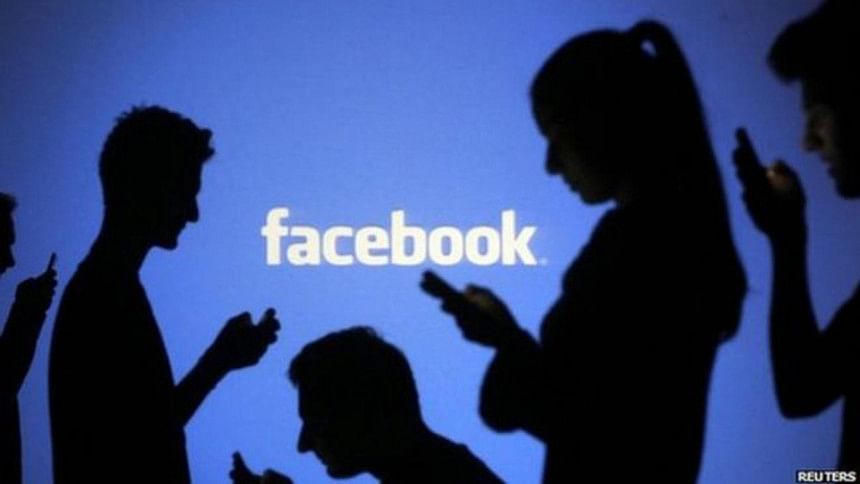Half of online world uses Facebook

Half of the world's estimated online population now check in to the social networking giant Facebook at least once a month.
Facebook said the number of people who use it at least monthly grew 13% to 1.49 billion in the three months to the end of June.
The number is equal to half of the estimated three billion people who use the internet worldwide.
Of those users, it said well over half, 65%, were now accessing Facebook daily.
The rise in monthly active users helped drive second quarter revenue up 39% year-on-year to $4.04bn (£2.6bn).
Mobile advertising revenue was the biggest factor, accounting for more than three quarters of the total.
In the US, the company said people were now spending more than one out of every five minutes on their smartphones on Facebook.
'Strong quarter'
"They're keeping people hooked.
"But as well as keeping an eye on the short term gains they're also keeping an eye on the long term so they're future proofing themselves - it's clear this is an organisational imperative," Forrester analyst Erna Alfred Liousas told the BBC.
Despite what Facebook boss Mark Zuckerberg said was a "strong quarter", its shares fell more than 3% in after hours trading.
Facebook shares, which are currently trading at around $97 a share, have risen 24% so far this year, easily beating the 7.9% rise in the Nasdaq over the same period.
Analysts said the share price drop was linked to the high expectations for the firm, which typically tends to beat forecasts, as well as concern over its high expenses.
Higher spending
Facebook said that costs and expenditures for the quarter had surged by 82% to a hefty $2.8bn.
As a result, net income fell 9.1% to $719m - equal to 25 cents a share - but the firm said if various expenses were excluded earnings would have been 50 cents a share.
Zuckerberg said the costs reflected "ongoing investments and improvements" it had made, such as its new data centre in Texas, which had helped reduced crashes on the network.
The social network giant warned in April that expenses could rise by up to 65% due to various investments in new staff, changes aimed at improving mobile revenue and the cost of improving products such as messaging service WhatsApp and photo-sharing app Instagram.
But it said expenses would now be lower than expected, at up to 60% higher.
Facebook also highlighted the increasing importance of video, saying that usage continued to grow.
And it said it would start selling its Oculus Rift 3D headset in the first three months of next year.
"3D content is the obvious next thing after video.
"Video will be huge, gaming will be huge. Once you start to get a critical mass we can get a social app which we are more specialised in," said Zuckerberg.

 For all latest news, follow The Daily Star's Google News channel.
For all latest news, follow The Daily Star's Google News channel. 



Comments